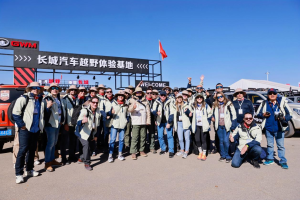Rev. Can. Duncans Mugumya, the incoming Commissioner of Physical Education and Sports at the Education Ministry however insisted he will be disciplined as per rules and regulations of sports. “We have a code of conduct and that is what we will use to help him be disciplined, to help him be counseled and to help him develop his career if he is willing to be disciplined and settle down to do so,” Mugumya said.
On the other hand, Moses Muhangi, the president of the Uganda Boxing Federation (UBF) says the treatment of Ssekitoleko will dissuade many people from joining sports.
“How do we interest you, young people, to join sports?” he asked. “How do we convince parents to give us their kids when there is nothing to show for their efforts and sacrifice? And when athletes make a simple error, they are crucified as chicken thieves.”
Muhangi says Ssekitoleko should have been let to go home after making a statement at police since he is already in Uganda and he can be summoned to answer questions anytime.
Muhangi argues that the government “has done so much” to contribute to the disappearance of athletes.
He mentions Juma Miiro and David Ssemujju, boxers who have won medals but got nothing, in his view, from the government. The president previously promised a monthly salary to all medalists. However, the promise has never been fulfilled.
Muhangi said Miiro, a boxing bronze medalist at the Commonwealth Games in Australia in 2018 who thought of staying to go and seek a decent living. Muhangi revealed that it took him a lot of effort to convince the athlete to come back to the country, assuring him of a monthly salary promised by President Museveni to all medalists.
Mother distressed
Sekitoleko’s mother Juliet Nalwadda is not happy with the turn of events, wondering why her son “is languishing in police cells, mixed up with thieves, drug abusers and all manner of criminals.”
In her view, his only mistake is that after being told he would not take part in the Olympic Games in Tokyo, he went into town to look for a job in hope of supporting his wife who is pregnant with their first child. Ssekitoleko even wrote a note spelling out exactly what he was going to do and why.
The story of Ssekitoleko’s sacrifice to win several medals for Uganda in the past, as told by his mother Julliet Nalwadda, is heartbreaking.
She says she always borrowed money to buy food and medicines to support her son’s training and treat his injuries and now concludes that it all has amounted to nothing if he is treated like a criminal.
It is a situation his partner, Desire Nampeewo, is familiar with, as she says, she last year “met a guy who was struggling to make ends meet. He had nothing, except the pride that he had represented Uganda in foreign countries several times.”
He had by this time won several medals for his country, including a bronze, won just a couple of months ago in the African Weightlifting championship that was held in Nairobi, Kenya?
When our reporter visited the family in Wabigalo, Kibuli, Makindye Division, Juliet Nalwadda, Ssekitoleko’s mother dashed to the house to bring more than two dozen medals that her son has won from rugby and weightlifting. The point she wanted to make is that her son has been hardworking but all medals he has won now count for nothing to the country he has been battering his body to represent.
Nalwadda argued that government should take care of sports personalities who represent the country in numerous sporting activities.
“I am disappointed with the government because whenever they take athletes to represent Uganda, on return they only care about those who have won medals, and the rest are only given food during the days of competing,” she says.
She narrated that whenever Ssekitoleko returned after representing Uganda abroad, on return, he would fall sick because of a short stay in a new environment, climate, and food. The illness would also be due to the fact that he would use a lot of energy hoping to win a medal.
A weightlifter always needs good food but it’s always in short supply at home because of lack of money, Nampeewo says.
When training for Tokyo Olympics, Ssekitoleko’s mother says, he “borrowed money to buy food supplements. He had no phone. They were told they would be getting all programs on phone. He borrowed money to buy a phone.”
When he left for Tokyo, he left an expectant wife with only Uganda shilling 150,000 which he had just borrowed. After hearing that he had vanished in Japan, the landlord evicted the wife from the house they were renting. They had not paid four months’ rent of 600,000 Uganda shillings.
Ssekitoleko isn’t the first athlete to vanish while representing Uganda. Last month, Uganda Rugby Sevens player James Odong disappeared from a hotel where his teammates were camped in Monaco, France.
Many athletes have worked tirelessly like Ssekitoleko to win medals which come with no financial reward. For instance, Hellen Baleke won a Bronze medal at the 2019 All Africa Games in Rabat Morocco but it came without financial reward. Thus, it never made any difference in her life. She lives in Katanga slum. She does tailoring work but her sewing machines were confiscated by the landlord after failure to pay rent, she told URN in March.




